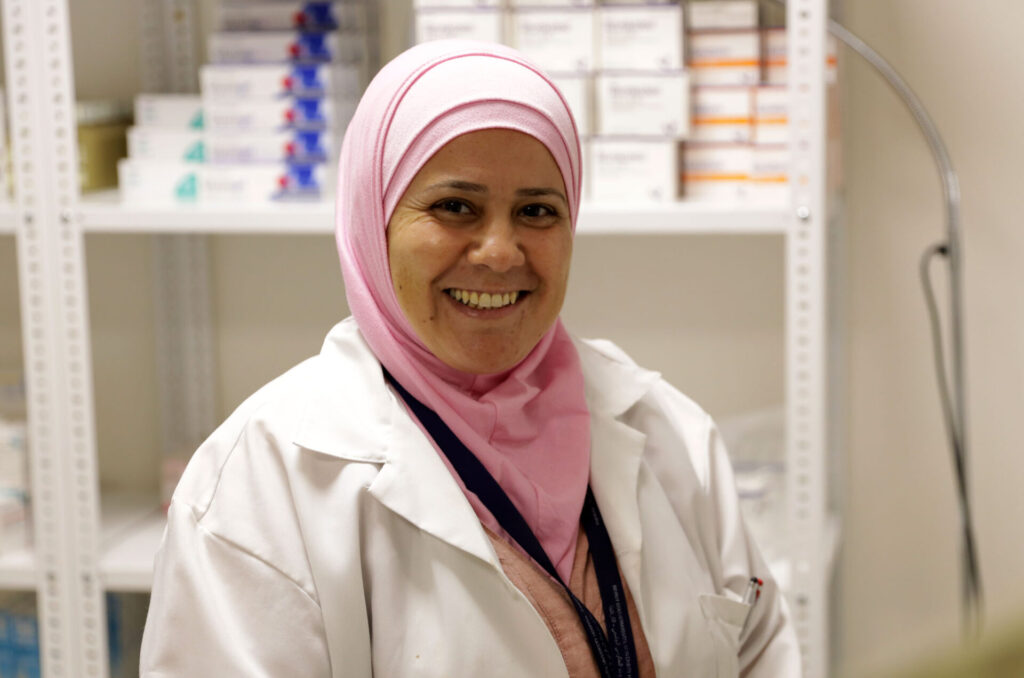Aug, 2016
Ibtisam Loubani is a 36-year-old mother of seven living in Nahr El Bared Camp, northern Lebanon. She feeds her family with the modest income she gathers as a private tutor.
This is her family’s sole source of income, as Ibtisam’s husband is disabled after suffering from a stroke a few years ago.
Ibtisam’s family is among the 176,000 Palestinian refugees in Lebanon designated as poor or extremely poor, which amounts to about 73% of the total Palestinian refugee population there. And according to UNRWA, all Palestinians in Lebanon with a disabled head of household– like the Loubanis — live in extremely poor conditions. That means they live on no more than $2.17 per day.
Proper access to health care is of the biggest challenges Ibtisam faces, since the little money she makes is barely enough to feed her family. For this vulnerable family, health care is a privilege. Meals for Ibtisam’s children are prioritized over any medicine that costs more than a day’s worth of money.
Donated Medicine Lends a Helping Hand
Due to the poor socio-economic status of many Palestinian refugees in Lebanon, AmeriCares recently donated a shipment of Mebendazole tablets, a medicine used to treat a number of parasitic worm infestations. Ideally, this medicine is prescribed twice per year to everyone over the age of 14 as a preventive measure. With this in-kind donation, the medicine will be available in all of the Palestinian refugee camps for the next year.
Many patients are not able to pay for both medical consultation and medicine, said the physician Dr. Hasan Barakeh. “Even if a clinic offers free consultation, it will be worthless if the medicine isn’t available.” This was also emphasized by Ibtisam, who wished that vital medicines like antibiotics were always on-hand.
Ibtisam and four of her children came to the clinic of the National Institute of Social Care and Vocational Training in Nahr El Bared Camp to take their biannual dosage. The clinic is nestled in an underprivileged area in the camp that is beyond UNRWA’s area of operations. An estimated 11,200 people use the clinic for dental care, reproductive health, pediatrics and mental health.
“I usually try my best to follow the doctor’s recommendations of taking Mebendazole twice per year,” said Ibtisam. “But if it wasn’t available in the clinic, I wouldn’t be able to afford it for my family.”


